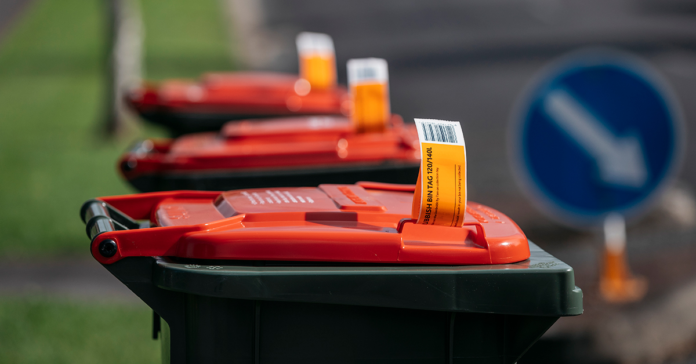Source: Auckland Council
Auckland’s kerbside rubbish, recycling and food scraps collections are considered essential services and will continue as usual during Alert Level 4.
In order to keep providing this service, the council is following all Ministry of Health guidelines to ensure that public health is not compromised.
Here are the steps that you can take to make sure your kerbside collection is picked up:
- Collections should be placed kerbside by 7am on your normal day.
- As more people park on the road, make sure your bins are visible and are not blocked by vehicles. The collectors need to be able to access your bin using the automated technology as much as possible to reduce unnecessary contact.
- The “pay as you throw” refuse service is running as normal in areas that use bin tags. The tags will be checked but not removed. Rubbish bags and pay as you throw bin tags are still available from most supermarkets for areas that have this service. Please place a fresh tag on your bin when using this service.
- Anyone with a food scraps bin should avoid placing tissues in them. These, and other hygiene products, should be bagged and placed in rubbish bins.
- Wipe down your bin handles and wash your hands after you’ve touched your bin.
Landfills, transfer stations and community recycling centres
The Waitākere Refuse and Recycling Centre, Waiheke Community Resource Recovery Park and Claris Landfill on Aotea / Great Barrier Island are closed to the general public but open to licensed essential services contractors for limited hours and services. Community Recycling Centres are closed at Alert Level 4.
Inorganics
The inorganics service for mainland Auckland is on hold at this time. If you see dumped rubbish, please report it by calling 0800 NO DUMP (0800 663 867).
Bin requests
Household bin removals, exchanges or minor repairs have been placed on hold at this time. You may request new bins or bin replacements.
How you can minimise waste
We encourage people who are compost-curious to learn online from our community partner, the Compost Collective. Their facilitators are available on social media to answer questions and provide virtual support.
This is also a good time to minimise food waste by eating the parts of food you may have passed up before, like broccoli stalks, bread crusts, and potato skins. We have a free cookbook, and there are recipes and videos available from Love Food Hate Waste.



